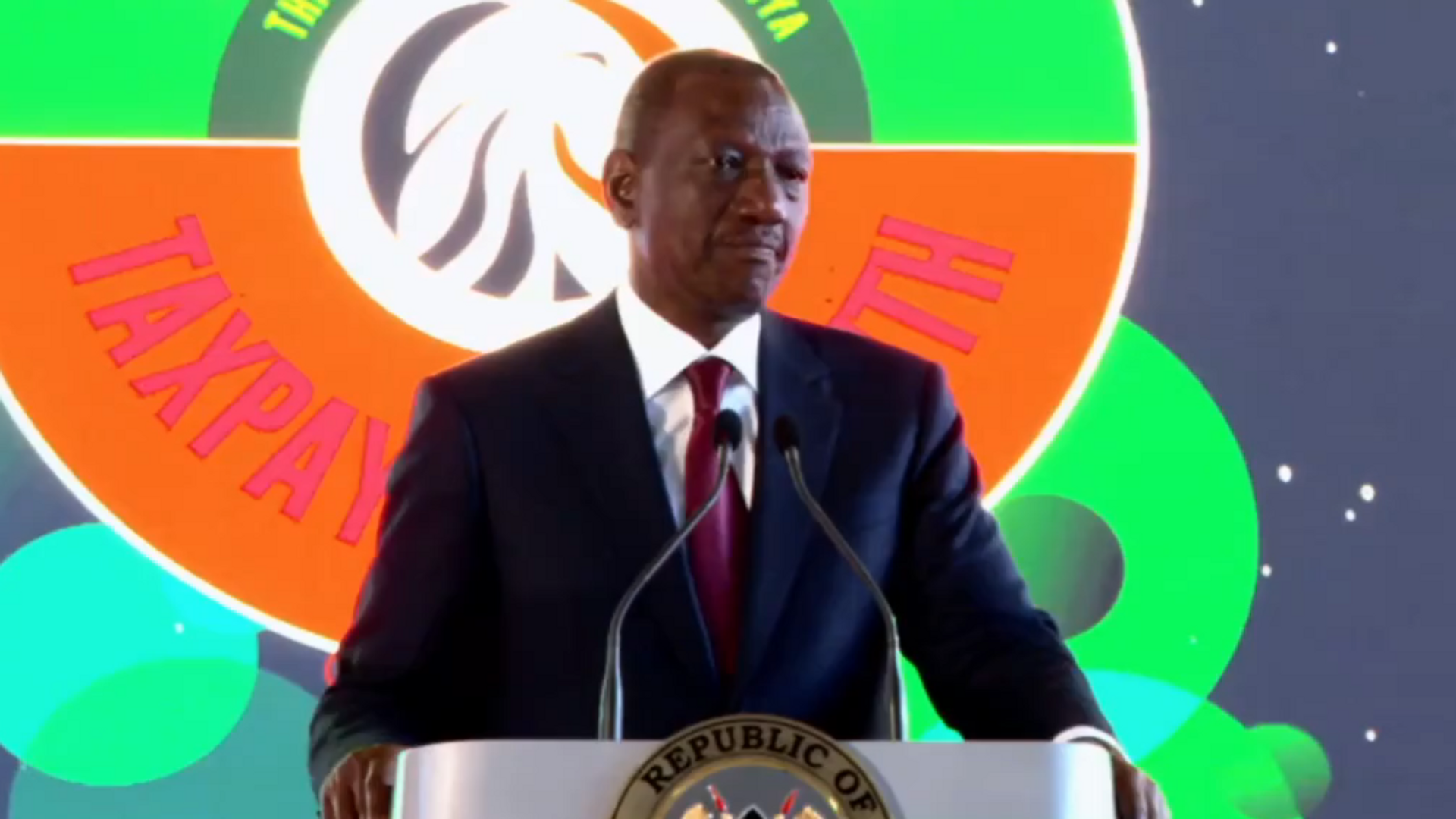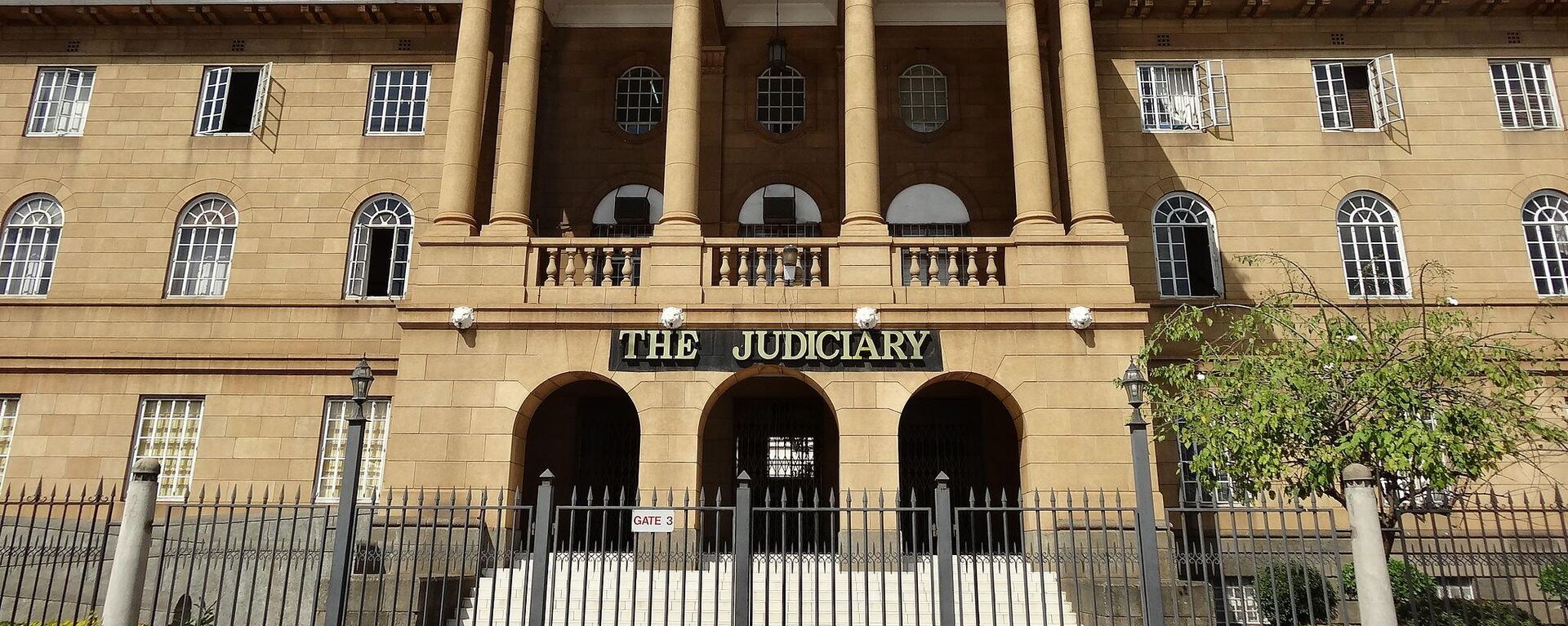https://en.sputniknews.africa/20241102/kenya-introduces-economic-and-tax-changes-aimed-at-enhancing-revenue-collection-1068994756.html
Kenya Introduces Economic and Tax Changes Aimed at Enhancing Revenue Collection
Kenya Introduces Economic and Tax Changes Aimed at Enhancing Revenue Collection
Sputnik Africa
Earlier this year, Kenya faced major protests sparked by a contentious finance bill that suggested higher taxes. Starting in June and continuing through... 02.11.2024, Sputnik Africa
2024-11-02T12:49+0100
2024-11-02T12:49+0100
2024-11-02T12:49+0100
sub-saharan africa
william ruto
kenya
taxes
economy
reforms
debt
protests
east africa
international monetary fund (imf)
https://cdn1.img.sputniknews.africa/img/07e8/0b/02/1068994943_139:0:1394:706_1920x0_80_0_0_95784052195f7b9bb7d9e14a181bd5b0.png
During Kenya’s annual Tax Payers' Day at State House on Friday, President William Ruto announced sweeping changes aimed at strengthening Kenya’s revenue base and achieving economic stability.Speaking before government officials, business leaders, and citizens, Ruto set a goal to increase the country’s revenue collection from 14% of GDP to 22% within a decade. The president underscored the government's recent success in expanding the tax base, adding 1.2 million new taxpayers and generating Sh24.6 billion (about $190.7 million) in additional revenue for the 2023/2024 financial year.He acknowledged that persistent issues, such as high unemployment and a housing shortage, have hindered socio-economic progress and require immediate attention. To meet these goals, Ruto announced that technology will be central to future tax operations.Notably, as part of these reforms, the government announced its intention to reintroduce several tax measures previously dropped after public protests earlier this year. Among these are increases in VAT and new taxes on the digital sector, including freelancers in food delivery and ride-hailing services, who will be required to pay income tax for the first time.Facing fiscal pressures from an $80 billion debt, the administration is preparing three new tax bills to close the revenue gap. While Ruto did not detail these proposals, he stressed the need for fair taxes, asserting that all eligible parties should contribute to Kenya's economic growth and resilience.The Kenya’s leader also highlighted the importance of a fair and comprehensive tax system.He encouraged taxpayers to report tax evasion using the KRA’s iWhistle platform, adding that “taxpayers have a right to know how their money is being used.”Last week, Kamau Thugge, head of the Central Bank of Kenya, stated at the IMF and World Bank annual meetings in Washington that Kenya is complying with the IMF's demands to secure a four-year loan. Thugge mentioned that Kenya has met all requirements for the loan reviews and noted upcoming targets for December. The agreement with the IMF, made in 2021, includes a total of $3.6 billion, factoring in climate change funding.
https://en.sputniknews.africa/20241030/kenyas-supreme-court-upholds-controversial-finance-act-ending-legal-battle-1068954385.html
kenya
east africa
Sputnik Africa
feedback@sputniknews.com
+74956456601
MIA „Rossiya Segodnya“
2024
Christina Glazkova
https://cdn1.img.sputniknews.africa/img/07e7/0b/07/1063380906_0:0:673:674_100x100_80_0_0_79628b4d0cd9f29291a57aa13bbf9e7a.jpg
Christina Glazkova
https://cdn1.img.sputniknews.africa/img/07e7/0b/07/1063380906_0:0:673:674_100x100_80_0_0_79628b4d0cd9f29291a57aa13bbf9e7a.jpg
News
en_EN
Sputnik Africa
feedback@sputniknews.com
+74956456601
MIA „Rossiya Segodnya“
Sputnik Africa
feedback@sputniknews.com
+74956456601
MIA „Rossiya Segodnya“
Christina Glazkova
https://cdn1.img.sputniknews.africa/img/07e7/0b/07/1063380906_0:0:673:674_100x100_80_0_0_79628b4d0cd9f29291a57aa13bbf9e7a.jpg
william ruto, kenya, taxes, economy, reforms, debt, protests, east africa, international monetary fund (imf), world bank, loan
william ruto, kenya, taxes, economy, reforms, debt, protests, east africa, international monetary fund (imf), world bank, loan
Kenya Introduces Economic and Tax Changes Aimed at Enhancing Revenue Collection
Christina Glazkova
Writer / Editor
Earlier this year, Kenya faced major protests sparked by a contentious finance bill that suggested higher taxes. Starting in June and continuing through August, demonstrators showed strong resistance to the proposed tax increases. As a result of the widespread unrest, President William Ruto ultimately withdrew the finance bill.
During Kenya’s annual Tax Payers' Day at State House on Friday, President William Ruto announced sweeping changes aimed at strengthening Kenya’s revenue base and achieving economic stability.
Speaking before government officials, business leaders, and citizens, Ruto set a goal to increase the country’s
revenue collection from 14% of GDP to 22% within a decade. The president underscored the government's recent success in expanding the tax base, adding 1.2 million new taxpayers and generating
Sh24.6 billion (about $190.7 million) in additional revenue for the 2023/2024 financial year.
“We must address these challenges collectively to create a more resilient economy,” Ruto said, noting that his Bottom-Up Economic Transformation Agenda would play a key role in creating jobs, boosting productivity, and reducing the cost of living.
He acknowledged that persistent issues, such as high unemployment and a housing shortage, have hindered
socio-economic progress and require immediate attention. To meet these goals, Ruto announced that technology will be central to future tax operations.
“We will deploy artificial intelligence and automated systems for improved service delivery,” he said, explaining that the Kenya Revenue Authority (KRA) will lean heavily on digital tools to improve tax compliance, aiming for a 90% compliance rate by 2026/2027.
Notably, as part of these reforms, the government announced its intention to reintroduce several tax measures previously dropped after public protests earlier this year. Among these are increases in VAT and new taxes on the digital sector, including freelancers in food delivery and ride-hailing services, who will be required to pay income tax for the first time.
Facing fiscal pressures from an
$80 billion debt, the administration is preparing three new tax bills to close the revenue gap. While Ruto did not detail these proposals, he stressed the need for fair taxes, asserting that all eligible parties should contribute to Kenya's
economic growth and resilience.
The Kenya’s leader also highlighted the importance of a fair and comprehensive tax system.
“Our tax measures must be fair, and every eligible entity must pay,” Ruto emphasized.
He encouraged taxpayers to report tax evasion using the KRA’s iWhistle platform, adding that “taxpayers have a right to know how their money is being used.”
Last week, Kamau Thugge, head of the Central Bank of Kenya,
stated at the IMF and World Bank annual meetings in Washington that Kenya is complying with the IMF's demands to secure a four-year loan. Thugge mentioned that Kenya has met all requirements for the loan reviews and noted upcoming targets for December. The agreement with the IMF, made in 2021, includes a total of $3.6 billion, factoring in climate change funding.



